They say you can never really prepare for motherhood. But no one could have prepared for motherhood in a time of Covid-19.
For the thousands of women giving birth across Australia over the next few months – as restrictions remain in place to control the spread of coronavirus – the experience will be a spartan one. Women are allowed just one support partner, must wear face masks, and – assuming there are no complications – will be asked to leave the hospital after a short, four-hour stay.
Forget flowers, beaming visitors and mothers groups; today’s new mothers will look back on memories filled with face masks, PPE and social isolation.
It’s a spare and lonely scenario that has many experts worried. New Zealand Prime Minister Jacinda Ardern recently singled out new mothers as a group deserving of extra attention. “I have such empathy. It wasn’t so long ago that I was in that same position. I worry about that group. They usually get visits and they usually get extra contact and they usually have extra support.”
Then there are the women whose stories you’re less likely to read – the ones who have spent months, sometimes years, privately struggling to conceive, only to have fertility treatments put on hold because of a ban on non-urgent elective surgery.
“We understand why the Government made the decision to put fertility treatment on hold,” says top Melbourne IVF doctor Lynn Burmeister. “But it has been exceptionally hard for women who were starting IVF, or in the process of beginning their treatment. Doing IVF is already stressful and emotionally draining, and being asked to put precious baby plans on hold is devastating.”
“For many women,” she continues, “waiting two months is too long. Every month is precious. We need that golden egg, and time is of the essence. All we can do is remain positive, stick together and try to remember that we will get through this.”
‘It’s been an emotional rollercoaster’
Rebecca Sullivan, 38, is an author and sustainable living expert who lives in the Clare Valley, SA, and is expecting her first baby in two weeks
“I live in the country, and the birthing suite at my local hospital is beautiful. Before everything with Covid, I had this idea that [when I gave birth] I would be able to pace around, wear my nightie and listen to my music up loud.
I expected to be able to sleep there for two or three nights with my partner Damien, get the baby on the boob, give the baby to the midwives for cuddles.
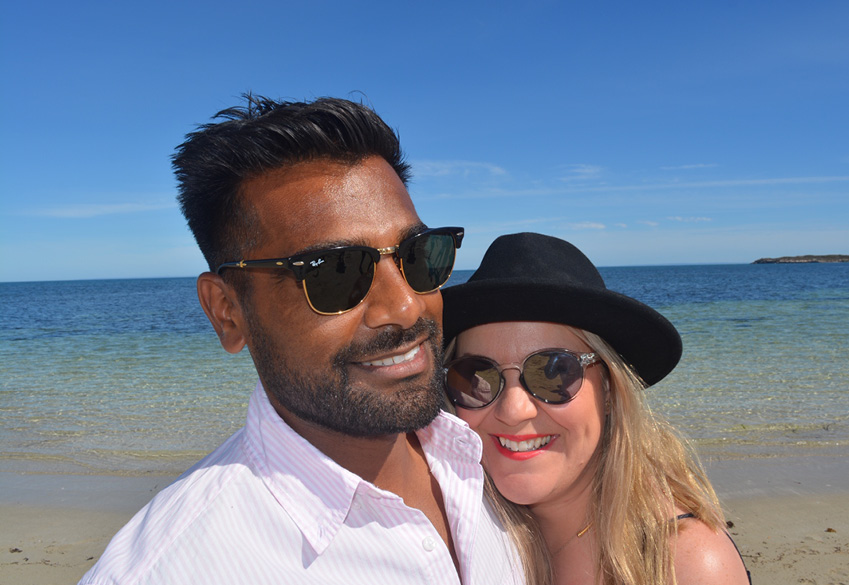
And now, with Covid, you’re only allowed to stay in the hospital for four hours after you have the baby. Damien will have to wear a face mask. I’ll have to wear a face mask when I’m pushing.
Before Covid, I also planned to have my mum in the room with me, as well as Damien, and now we’re only allowed one birth partner. My mum was a nurse and we’re very close. I’m the first in the family to have a baby. And, my nan, who lives with my mum, is getting her first great grandchild.
So, it’s a very, very exciting time but it’s also a very sad time.
So, it’s a very, very exciting time but it’s also a very sad time.
I’ve got a very large – very close, very loud, very intense, and absolutely wonderful – family. Damien has a big family, too. And none of them are going to meet the baby for who knows how long.
It’s been a real rollercoaster. I found out I was pregnant about two months into the most intense four-and-half-months of my life as a fellow at Yale’s World Leaders Program [in the US]. So, for the first four months of the pregnancy I was without my partner. I had all the scans myself. He missed out on a lot. And then I got home at the end of December, and it was the bushfires – and my Masters is in climate change – so I’m trying to digest these months of intensity, and then the world starts falling apart again.
Damien has taken sick leave so we could socially isolate. He’s a high-school teacher and during the week he lives in Adelaide, close to school. But we didn’t want to risk him not being there for the birth – it’s so strict that even if you have a sniffle you’re not allowed in the hospital.
We’ve had to adapt with Covid. Initially I was quite blasé about the birth plan. I’ve was really aware of the emotion and trauma that lots of women experience when birth plans don’t go to plan. So, I just wanted to go with it…
But after Covid, I realised that I couldn’t be so blasé anymore. I was already having lots of things taken from me. So, I wrote a letter to my doctor and Damien about the things I would like and not like [during the birth] – with the huge underlying caveat that if any of its unsafe just discount it.
It’s daunting to think that I’ll only be able to stay in the hospital for four hours afterwards. But all I want is a healthy, safe delivery. A healthy baby boy. I don’t care about the rest.”
You can follow Rebecca @grannyskills.
“I think about it all the time. It’s so emotional”
Nicole Baskerville, 27, is a marketing campaign manager and has been undergoing IVF for 18 months
“We started trying to fall pregnant just over two and a half years ago. I have endometriosis so I always knew it might not be easy to fall pregnant. But after six months, we knew we wanted to investigate and since then we’ve done six IVF cycles. Early on, after we did a lot of tests, we found out that my AMH levels [ovarian reserve] were very low. I’m perimenopausal. So [when I do IVF] I’m lucky to get eggs at all.
It’s really taken a toll. It’s so emotional, and you cycle through feeling happy and excited and heartbroken and sad with every round of IVF. So far, we’ve spent tens of thousands of dollars – and spending that kind of money really increases the pressure. It’s a lot to cope with.
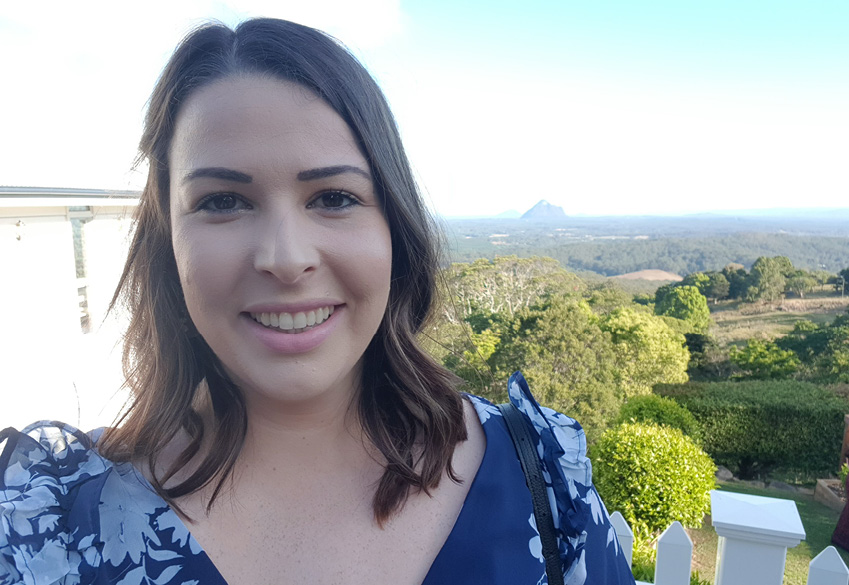
I think about falling pregnant a lot. Every time I feel a change in my body – a tweak or I think my boobs are sore – it’s on my brain. I think about it before I go to sleep and it’s hard to switch off. Last year, it seemed as though somebody I knew was announcing they were pregnant on Facebook or Instagram every week.
At the moment, on social media, you see people talking about being at home with children [during lockdown], and I can understand that that must be a challenge. But it’s tough. Sometimes I need to unfollow accounts or take a break from social media.
We’ve only just moved to Dr Lynn [Burmeister] and when she told me about the government news, it was really tough. I feel really angry and frustrated. I understand there’s a lot going on and that people are ill. It’s a tough situation for everyone, but I don’t think that IVF should be seen as elective surgery. I didn’t ‘elect’ to be infertile.”
“There is a lot of fear out there. Sometimes it sinks in”
Julia Bonello gave birth to Lily Grace Jones in Sydney in February, just before lockdown began.
“[Before Covid] my sister and mother were so excited to be involved in Lily’s life. Not having them around or letting them cuddle Lily has been tough. I can’t believe how much I miss hugging people. Humans need touch, we need to feel that closeness to people. In the early days of motherhood and having a newborn, it would have been nice to have my nearest and dearest around. It’s amazing what a hug from your sister can do.
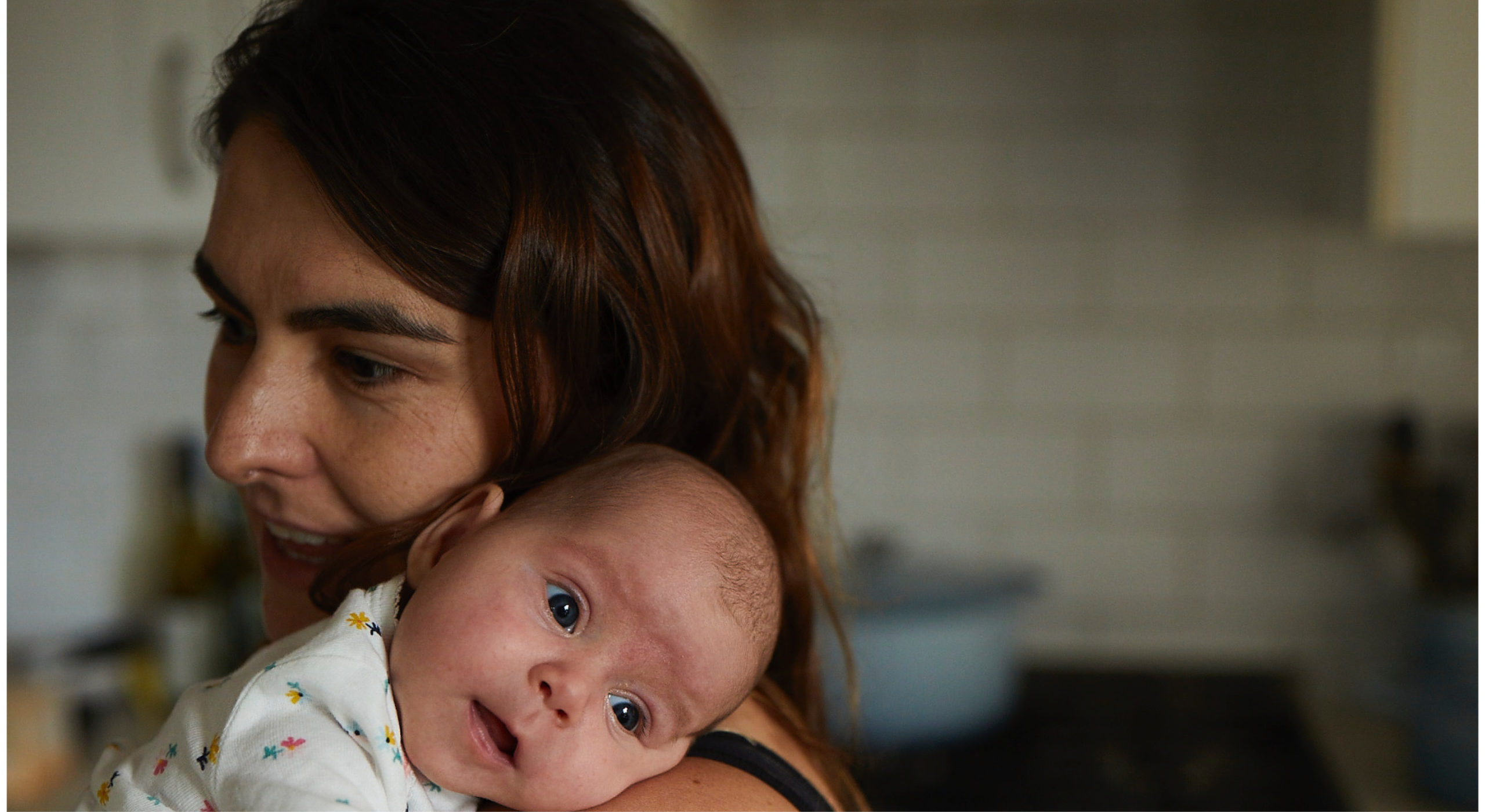
However, it has been nice in the sense that [my partner] Tim and I have had this time to experience being new parents together and to just be a family with no pressure to “get out of the house” or meet people. It’s allowed us to be in the moment with our daughter without the pressures and expectations from the outside world.
In the beginning I was anxious about Lily beng affected by Covid as she was so tiny and vulnerable. She came three weeks early so I was very protective of her. Now I don’t feel so much anxiety as I did in the beginning. However, I wouldn’t be as relaxed as I might have been if Covid wasn’t around. There is a lot of fear out there, sometimes it sinks in.
Motherhood is going well. It’s definitely so different actually experiencing it rather than hearing about it. It’s such a happy, special, amazing, challenging, tiring experience – all rolled into one.
The best bits are just holding Lily and breathing her in – you wait so long to meet this little person. It still gives me butterflies to see her little face and see her smile.
The best bits are just holding Lily and breathing her in – you wait so long to meet this little person.
The worst bits are the sleep deprivation – you feel like you’re guessing your way through everything. I would panic when she would sneeze. Also hearing her cry escalate, that is a sound completely designed for mothers as it does something to my body. It’s amazing and crazy how it all works.
When this is over, I’m looking forward to being with family and friends. Letting Lily get to know and be held by her aunty, grandma and uncles and beautiful cousins. Just the simple things really. Visiting my gorgeous 91-year-old Nanna Grace – I named Lily Grace after her so can’t wait for them to finally met.”
‘New mothers have lost their village’
Vaughne Geary is a birth and post-partum doula, and co-founder of mama goodness food delivery service
“Shortly after the coronavirus restrictions came in, I drove from Melbourne to Bendigo to attend the birth of a lovely mama I’m supporting. But when I arrived at the hospital, we were told that I wasn’t allowed to go with them into the birthing space, which was a shock. Fortunately, the birth was straight-forward and the baby was healthy, but it was an upsetting experience. We’d had no time to prepare.
The new distancing rules mean only one person – usually, but not always, the woman’s partner – is allowed in the birthing space with her.
I have one client for whom I was going to be the main support person, but now her partner will fulfil that role, so we’ve been working through ways he can be much more hands-on and confident in advocating for his partner during the birth.
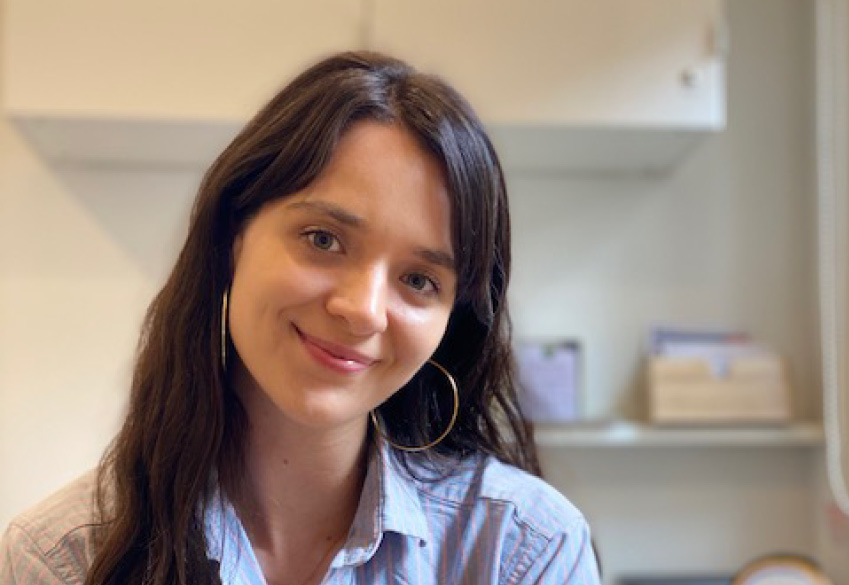
Doulas support women through pregnancy and post birth, helping them understand their options in terms of health care and care providers, and supporting them with information about the antenatal and birthing process.
I also provide physical advice on comfort positions during birth, for example – doulas love the physical, tactile side of things! But coronavirus restrictions means we’re having to jump online (and some of us aren’t that technologically advanced!) to demonstrate our methods.
What worries me is that pregnant women have lost so much face-to-face support. And after a baby is born, the mother’s parents, siblings and friends may not be able to visit.
New mums have lost their village, which is a huge concern for all of us at the moment. I saw a client last week who had her six-week postpartum check up over the phone with her GP. She was checking for her own abdominal separation.
There’s a lot of anxiety among women right now. Studies overseas have shown a massive increase in women enquiring about home birth, and there’s discussion about free birth, which is where women give birth alone. People are making split decisions at the last minute because they’re feeling a lack of control.
Women are strong and resilient, and they’re getting through this.”
Are you a new mother experiencing anxiety or depression? Help is available. Visit PANDA or call 1300 726 306




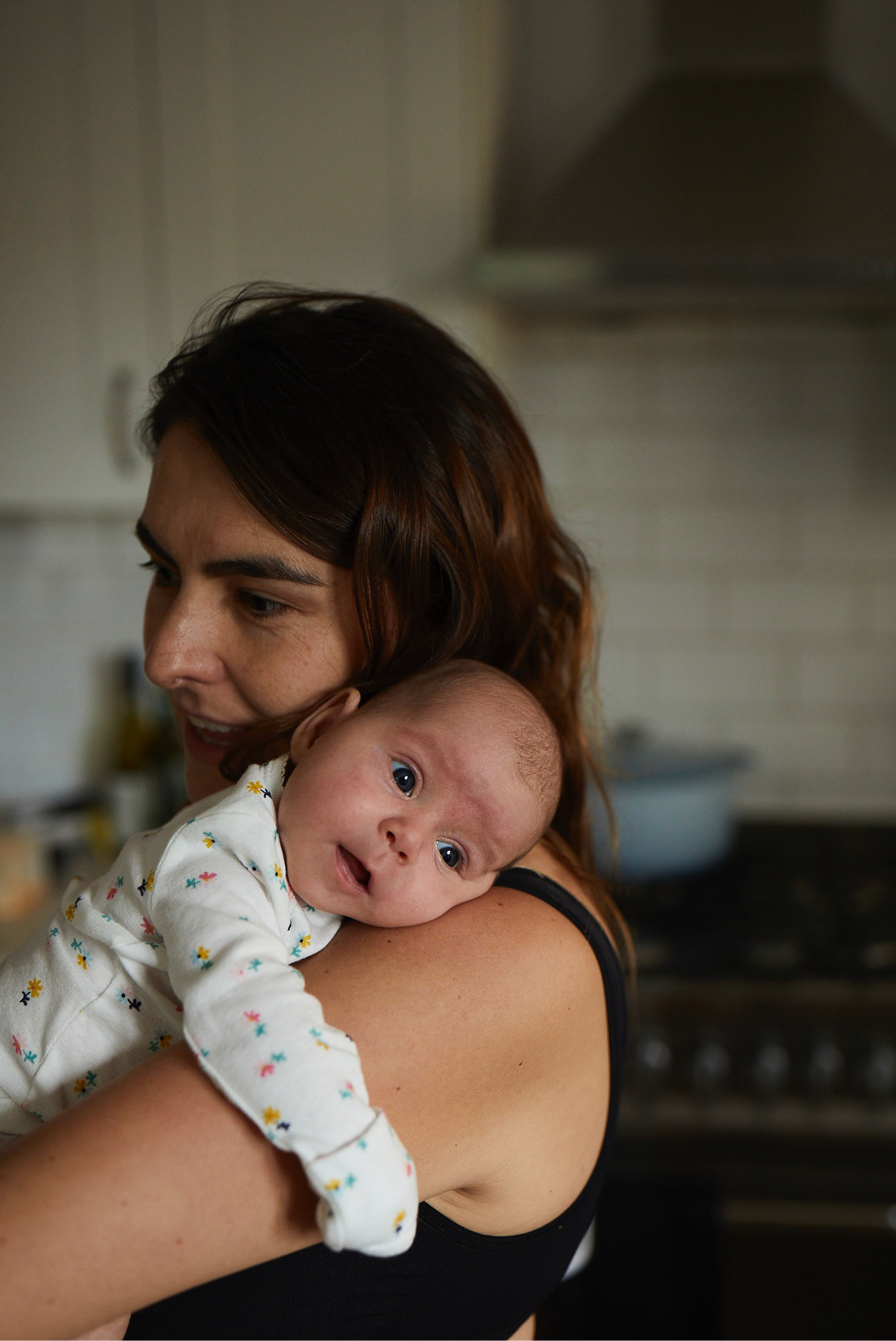


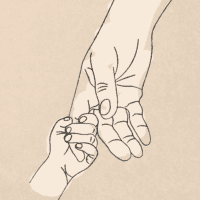

No Comments